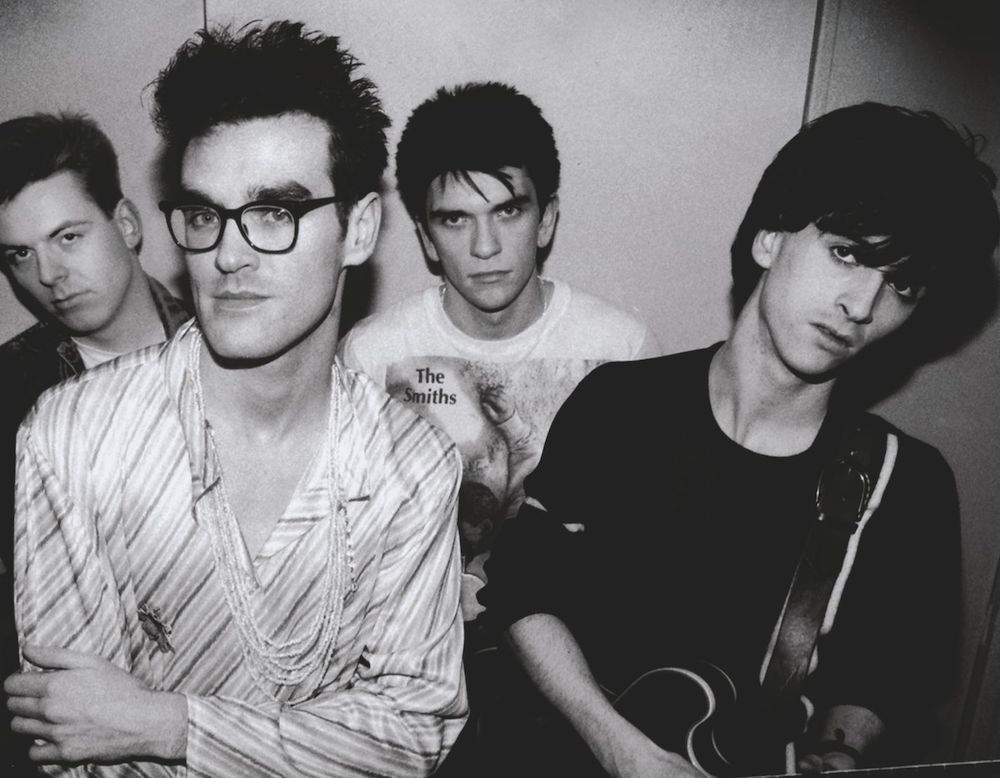History always seems inevitable in hindsight, but it was never a given that Justin Vernon would come away from his winter cabin retreat with a genius collection of songs that changed the trajectory of indie rock. Or that anyone would ever give those songs the attention they deserved. Or that his subsequent rise to fame would involve Kanye West guest spots, a Grammy win for Best New Artist, and a pivot into electronics that sidestepped pivot-to-electronics clichés as gracefully as his early work transcended folksy indie tropes. Given how many inspired demos go unheard, how many buzz bands become prisoners of their own reputation, and how hard it is to keep up a vital creative output for more than a decade, we should not take Bon Iver's ongoing brilliance for granted.
About a dozen years in, Vernon and his friends from Eau Claire, Wisconsin boast one of the strongest discographies in modern music. Their catalog extends from celestial folk-rock to computer-spliced post-genre deconstructions, bridging the gap between post-rock and soft-rock along the way, all of it guided by a falsetto that sounds grounded in Midwestern grit and blessed by otherworldly power all at once. After four classic albums, one momentous EP, and a smattering of impressive one-offs, they've rarely released a bad song. And if all this praise strikes you as hyperbole, you try narrowing down their career to just 10 highlights.
"PDLIF" (2020)
It remains to be seen exactly what Season 5 of Bon Iver will entail, but the band's post-i,i project got off to a breathtaking start with "PDLIF." Much of the song's beauty is bound up in the Alabaster dePlume sample that's looped throughout, a warm but heavyhearted avant-jazz flourish that Vernon and company turned into a gorgeous building block. From that foundation, they continued to evolve their unique sonic language, constructing a singular, complex delivery system for a simple, universal message: "Please don't live in fear."
"Naeem" (from i,i, 2019)
At the heart of i,i is arguably the most straightforward rock anthem in Bon Iver's catalog. "Naaem" builds and builds toward its triumphant pressure-release chorus, in which a round of voices declares, "I can hear crying!" Despite the mention of tears, it sounds more ecstatic than sad. There's a theatrical streak to "Naaem," like it could almost work in a Broadway revue -- fitting for a song that was originally conceived as part of the band's collaboration with TU Dance. But where physical motion is concerned, it's just as suitable for wearing out your vocal cords and pumping your fist.
"Holocene" (from Bon Iver, Bon Iver, 2011)
"Holocene" has become one of Bon Iver's signature songs for good reason. Like much of Bon Iver, Bon Iver, the track transports the supernatural glow of For Emma, Forever Ago out of the cabin and into a wide-open landscape where city life intersects with nature's sprawl. Vernon's abstract lyrics give us just enough details to parse some kind of storyline -- it's about getting drunk on Halloween in Milwaukee, while reeling from a breakup, and then having some kind of epiphany? -- but the draw here is graceful, expansive, surreal music that'll have you feeling like Vernon when he breathlessly declares, "I could see for miles, miles, miles."
"Blood Bank" (from Blood Bank, 2009)
Whereas a large percentage of Bon Iver songs are about breakups and their messy aftermath, "Blood Bank" presents two people coming together rather than falling apart. It's a chronicle of a flirtation that quickly spins off into amateur philosophy and deep, dark disclosures. "I know it well," Vernon sings, meting out one of his simplest, most effective melodies to date, set to a moody chord progression so standard it qualifies as comfort food. The glory of "Blood Bank" is the artful treatment Bon Iver apply to those common ingredients -- dropping out the arrangement one moment, draping it with a breathtaking swell of melodic feedback the next, leaving holes in the narrative to be filled by our imaginations.
"Beth/Rest" (from Bon Iver, Bon Iver, 2011)
Upon its release, Vernon's full-on embrace of '80s soft-rock schmaltz on "Beth/Rest" was shocking and subversive. Now that the surprise has worn off, what remains is stunning all the same. This electric-piano power ballad is about reckoning with endings, and appropriately it closes out Bon Iver, Bon Iver in a wash of bittersweet drama. Like so many early Bon Iver songs, the lyrics seem to address a breakup, but the music elevates things to a metaphysical plane. Vernon has compared the song to a death at the end of the album's arc, followed by an ascent into paradise. We'll all be very lucky if dying feels like "Beth/Rest" sounds.
"Skinny Love" (from For Emma, Forever Ago, 2007)
Some fans might shrug off "Skinny Love" as the province of bearded guys in knit caps at open mic nights -- a relic of a moment Bon Iver has long since left behind, like American Apparel and the Twilight movies. Others might uphold it as evidence of how much beauty Vernon can wring from just voice and guitar. Neither would be wrong. If the lovelorn ballad seems to skirt the edges of hokey singer-songwriter fare, that's partially because so many pretenders have attempted to copy its essence. But few of Vernon's imitators have ever paired such raw-nerve emotion with such piercing hooks. "Skinny Love" is proof that when you strip away the stylized arrangements and studio wizardry that helped to separate Vernon from the folk-rock pack, he's a gifted singer-songwriter at heart.
"Re: Stacks" (from For Emma, Forever Ago, 2007)
"Re: Stacks" forgoes the ghostly special effects and brassy accompaniment to close out For Emma, Forever Ago with a wistful crystalline exhale. Built from little more than a gorgeous gleaming chord progression and one of the most staggeringly pretty melodies of Vernon's career, it's a ballad about forcing yourself to move on even when your heart's not ready to let go. And like so many breakup songs, what makes it pathetic is what makes it relatable. "Your love will be safe with me," he concludes, wandering off into an uncertain future while still nursing his wounds.
"29 #Strafford APTS" (from 22, A Million, 2016)
22, A Million found Vernon deconstructing Bon Iver, Bon Iver's organic post-rock balladeer and rebuilding him as a stubbly transcendental cyborg at heaven's gate. It's best enjoyed as a full-album experience, but that experience peaks with "29 #Strafford APTS," a tender fingerpicked stunner laced with BJ Burton's digital undercurrents and Rob Moose's subtle orchestral splendor. As ever, Vernon manages to make a romantic falling out sound like a supernatural event, partially because his story is accented with obtuse phrases and made-up words. No matter how many effects he piles on, though, he can't hide the distinctively human ache in his falsetto.
"Perth" (from Bon Iver, Bon Iver, 2011)
I've never been to Perth, the seaside metropolis on Australia's West Coast that gave the world Tame Impala. But after hearing the Bon Iver song named for the city, I can only assume it's often the scene of Clash Of The Titans-level drama, a place where larger-than-life figures whip up the elements to do emotional battle on a more enormous scale than most of us could imagine. Introducing Bon Iver's second album with a post-rock grandeur comparable to Sigur Rós -- or, more likely, Vernon's side project Volcano Choir -- "Perth" blew out the For Emma sound into something thunderous and electric, turning it into the province of the arena and not the coffeeshop.
"Woods" (from Blood Bank, 2009)
It's an exhilarating piece of music regardless of context, but as with "Beth/Rest," context is necessary to understand just how wild "Woods" was when it first dropped. In 2009, Auto-Tune was still a controversial factor in pop music, and basically no one in Bon Iver's indie-folk sphere was even touching it. The effect ran counter to the stereotypical rootsy authenticity that so many of Vernon's peers were chasing back then. But this guy had no interest in dominating that lane when he could be carving out one all his own. "Woods" comprises nothing more than one a cappella mantra repeated at length: "I'm up in the woods, I'm down on my mind/ I'm building a sill to slow down the time." As the song progresses, Vernon's digitally altered voice piles up upon itself, layering harmonies and textures until he's become a one-man robotic choir, spinning his secular hymn outward and upward into a vast cathedral of sound. It's no wonder Kanye West heard this and decided he had to have it on his most grandiose album. But even before My Beautiful Dark Twisted Fantasy put Bon Iver in direct conversation with the mainstream, "Woods" was the sound of Vernon springing out of his predetermined genre box, never to be contained again.
Listen to the playlist on Spotify:






